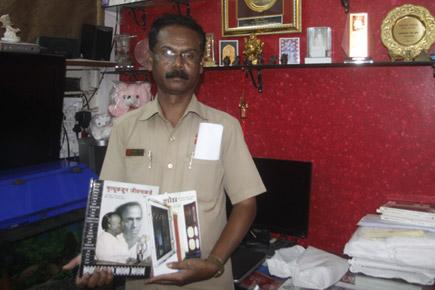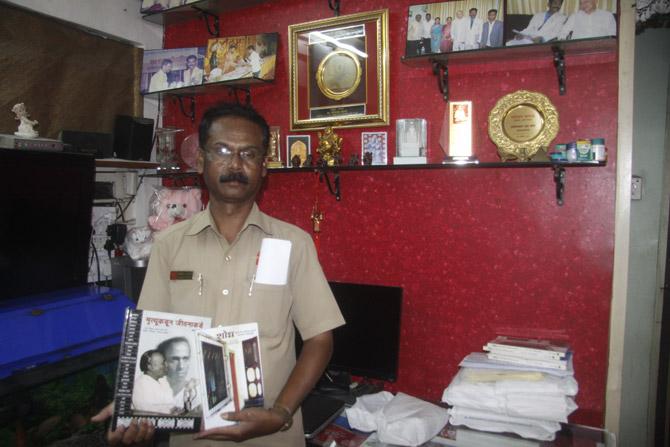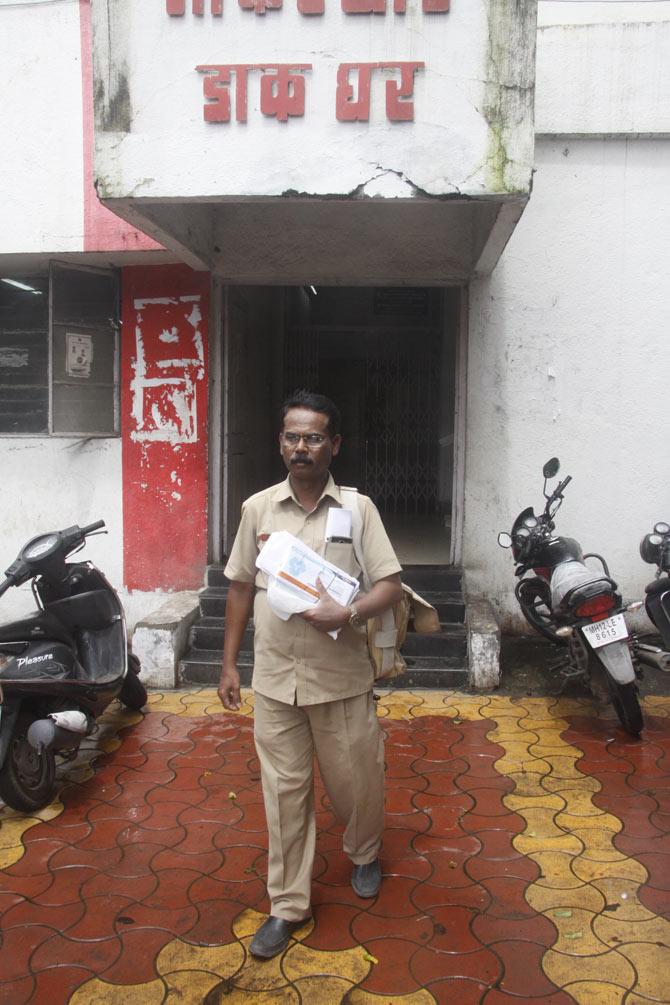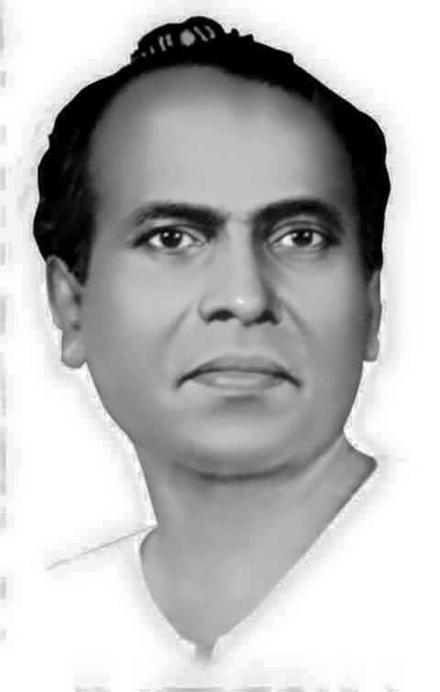Around the release of his 12th book, Pune mailman Dharmpal Kamble, promises to continue acquainting readers with Maharashtra's literary icons


Dharmpal Kamble has devoted his latest book to late folklorist and social reformer Annabhau Sathe
ADVERTISEMENT
After 30 years of service as a postman, Dharmpal Bapurao Kamble, 55, has trifling annual leave hours to his credit. That's because he has exhausted most of his paid and unpaid absences to research and write books for two decades.
Just as his 12th collection releases in Pune — an investigation into the fraudulent takeover of late social reformer-folklorist Tukaram Bhaurao Sathe's (popular as Annabhau) residential flat in Mumbai by an illegal tenant — he declares what is going to keep him busy for the next five years.

Kamble is working on a series of seven more books that explore Sathe's multifaceted writings.
In a self-guided mission that started in 2008, he unearthed the entire body of Sathe's works — folk songs (125 powadas, lawanis), folk plays (15), short stories (150) and novels (55). While some of the masterpieces are in public domain, the unpublished gems have been reclaimed from the Sathe family heirloom, of which most stunning are the retrieved pages of Sathe's autobiography. Kamble has made an addendum of 130 pages as evidence in support of the manuscript's veracity. "I owe Annabhau a personal debt of gratitude, not just because he was the voice of the working class, to which I belong, but because he questioned conventions and dogmas in the most effective words. He has contributed immensely to the evolved Maharashtrian sensibility," gushes Kamble, who continues to be awestruck by Sathe's historic line: The Earth is not resting on a snake's head (the Hindu myth of a shesh naag holding the universe on his hood) but on the palms of the Dalits and working-class people.

Kamble feels everybody writes on Babasaheb Ambedkar, but the other icons like Sathe (Matang by caste) also need to be introduced to the uninitiated. Pics/Mandar Tannu
Sathe, born in a disadvantaged Matang family, did not enjoy the privilege of a formal education. His penurious living in the lowest echelon of a hierarchical Hindu society resulted in the celebrated and widely translated novel, Fakira. Similarly, his Mumbaichi Lavani is, to date, quoted as the most evocative capture of Mumbai's mystique. Kamble, a matriculate mailman who couldn't pursue higher education himself, feels Sathe is a ray of hope for those like him. "I feel enthused when I revisit his literature which has not received its due in the top cultural circles, especially outside Maharashtra. Annbhau is seen as a Matang icon, but he should be primarily remembered as a first-rate litterateur."
Kamble is an evening researcher, bound by the eight hours he puts in at Pune's Market Yard Post Office. The postman's uniform is not new to his family, as his late father was a mailman at the Yerawada Post Office and his sister started as a mail clerk and rose to the post master's position. Kamble lives in the Gultekdi postal colony with his MBA degree-holding daughter and photographer-son. His wife and close circle of friends have launched Prerna publishing house, which ensures that none of his writings lie unpublished. "Unless there is family support, it is not easy to take on a dual life and self fund your research," says Kamble, recounting painstaking visits he has made to Mumbai's Asiatic Library, the Mumbai Marathi Granth Sangrahalya, and other documentation centers in Sangli, Satara, Kolhapur and Nasik. In fact, as a precursor to his investigative book on Sathe's residence, Kamble camped in Mumbai for a month last year, aiming to draw media and government attention. "Despite my exposé on the illegal owners of Sathe's Goregaon flat, the government machinery doesn't wish to take cognizance." He feels his latest project may change things.
But Kamble's research is not driven by readers' response. He appreciates feedback, especially when it comes in the form of fan mail or chance interactions with readers while he is on duty. Once he met an admirer at the Fergusson College library. The reader was seated beside Kamble, flipping through his first book (2002) on Prabodhankar Thackeray, another icon who fought for the linguistic state of Maharashtra. But Kamble chooses his subjects only when he feels close to them. "Ideology doesn't drive me. What drives me is a original flash of brilliance which I feel compelled to share with the reader."
His books are based on personalities ranging from Prime Ministers Indira Gandhi and Rajiv Gandhi, who, he says, have too many firsts to their credit, to Sushilkumar Shinde, the first Dalit to become Union Home Minister.
Kamble's social life doesn't stop at the post office. He is a regular attendee at literary meets and conventions organised by the University of Pune, and is founding member of six trade unions, including the Security Guards Board. "Writers need to be engaged with the world around them. That is where they find a new take on old issues," he feels.
Sumedha Raikar-Mhatre is a culture columnist in search of the sub-text. You can reach her at sumedha.raikar@gmail.com
 Subscribe today by clicking the link and stay updated with the latest news!" Click here!
Subscribe today by clicking the link and stay updated with the latest news!" Click here!







